08 Jun 20 | Statements
[vc_row][vc_column][vc_column_text]
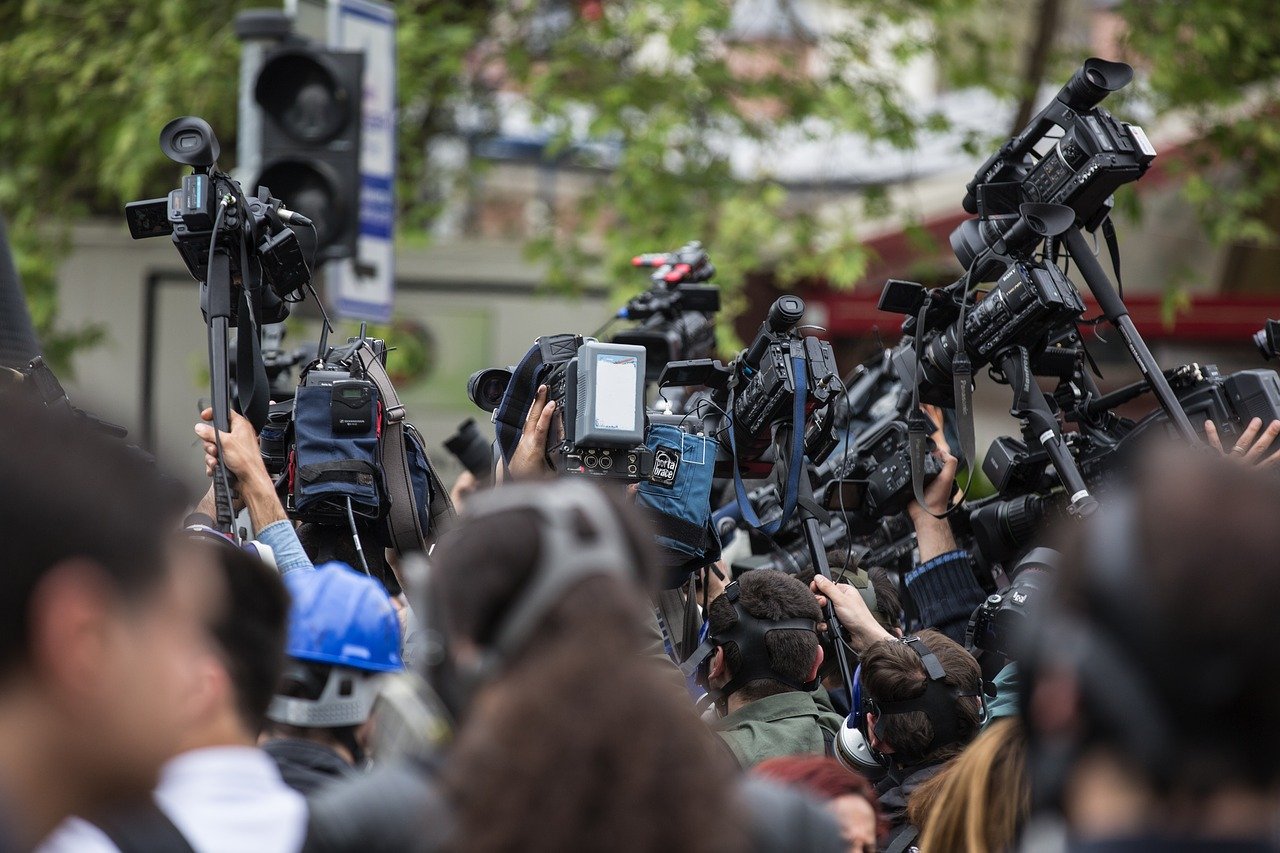
The problem: gag lawsuits against public interest defenders
The EU must end gag lawsuits used to silence individuals and organisations that hold those in positions of power to account. Strategic Lawsuits Against Public Participation (SLAPP) are lawsuits brought forward by powerful actors (e.g. companies, public officials in their private capacity, high profile persons) to harass and silence those speaking out in the public interest. Typical victims are those with a watchdog role, for instance: journalists, activists, informal associations, academics, trade unions, media organisations and civil society organisations.[/vc_column_text][/vc_column][/vc_row][vc_row][vc_column width=”3/4″][vc_column_text]Recent examples of SLAPPs include PayPal suing SumOfUs for a peaceful protest outside PayPal’s German headquarters; co-owners of Malta’s Satabank suing blogger Manuel Delia for a blog post denouncing money laundering at Satabank; and Bollore Group suing Sherpa and ReAct in France to stop them from reporting human rights abuses in Cameroon. In Italy more than 6,000 or two-thirds of defamation lawsuits filed against journalists and media outlets annually are dismissed as meritless by a judge. When Maltese journalist Daphne Caruana Galizia was brutally killed, there were 47 SLAPPs pending against her.
(Index has recently published a comprehensive review of the laws being used to silence journalists – click on the report cover to the right to read it.)[/vc_column_text][/vc_column][vc_column width=”1/4″][vc_single_image image=”113782″ img_size=”full” onclick=”custom_link” img_link_target=”_blank” link=”https://www.indexoncensorship.org/newsite02may/campaigns/the-laws-being-used-to-silence-media/”][/vc_column][/vc_row][vc_row][vc_column][vc_column_text]SLAPPs are a threat to the EU legal order, and, in particular:
● A threat to democracy and fundamental rights. The EU is founded on the rule of law and respect for human rights. SLAPPs impair the right to freedom of expression, to public participation and to assembly of those who speak out in the public interest, and have a chilling effect on the exercise of these rights by the community at large.
● A threat to access to justice and judicial cooperation. Cross-border judicial cooperation relies on the principles of effective access to justice across the Union and mutual trust between legal systems. That trust must be based on the legally enforceable upholding of common values and minimum standards. To the extent that they distort and abuse the system of civil law remedies, SLAPPs undermine the mutual trust between EU legal systems: member states must be confident that rulings issued by other member states’ courts are not the result of abusive legal strategies and are adopted as the outcome of genuine proceedings.
● A threat to the enforcement of EU law, including in connection to the internal market and the protection of the EU budget. The effective enforcement of EU law, including the proper
functioning of the internal market, depends on the scrutiny of the behaviour of individual entities by the EU, member states and – crucially – informed individuals. Watchdogs, be it media or civil society actors, play a key enforcement role. Therefore, the absence of a system which safeguards public scrutiny is a threat to the enforcement of EU law. The same reasoning applies to the management of EU programmes and budget, which cannot be monitored through the sole vigilance of the European Commission.
● A threat to freedom of movement. The absence of rules to protect watchdogs from SLAPP has an impact on the exercise of the Treaty’s fundamental freedoms, since it affects the ability of media, civil society organisations and information services providers to confidently operate in jurisdictions where the risk of SLAPPs is higher, and discourages people from working for organisations where they can be the target of SLAPPs.
The solution: an EU set of anti-SLAPP measures
The EU can and must end SLAPPs by adopting the following complementary measures to protect all
those affected by SLAPPs:
1. An anti-SLAPP directive
An anti-SLAPP directive is needed to establish a Union-wide minimum standard of protection against SLAPPs, by introducing exemplary sanctions to be applied to claimants bringing abusive lawsuits, procedural safeguards for SLAPP victims, including special motions to contest the admissibility of certain claims and/or rules making the burden shifting to the plaintiff to demonstrate a reasonable probability of succeeding in such claims, as well as other types of preventive measures. The Whistle-Blower Directive sets an important precedent protecting those who report a breach of Union law in a work-related context. Now the EU must ensure a high standard of protection against gag lawsuits for everyone who speaks out – irrespective of the form and the context – in the public interest.
The legal basis for an anti-SLAPP directive is to be found in multiple provisions of the Treaty; for example, Article 114 TFEU on the proper functioning of the internal market, Article 81 TFEU on judicial cooperation and effective access to justice and Article 325 TFEU on combating fraudrelated to EU programmes and budgets.
2. The reform of Brussels I and Rome II Regulations
Brussels I Regulation (recast) contains rules which grant claimants the ability to choose where to make a claim. This must be amended to end forum shopping in defamation cases, which forces defendants to hire and pay for defence in countries whose legal systems are unknown to them and where they are not based. This is beyond the means of most and falls foul of the principles of fair trial and equality of arms.
Rome II Regulation does not regulate which national law will apply to a defamation case. This allows claimants to select the most favourable substantive law and therefore leads to a race to the bottom. Today, victims may be subject to the lowest standard of freedom of expression applicable to their case.
3. Support all victims of SLAPPs
Funds are needed to morally and financially support all victims of SLAPPs, especially with legal defence. Justice Programme funds should be used to train judges and practitioners, and a system to publicly name and shame the companies that engage in SLAPPs, for example in an EU register, should be created.
Finally, the EU must ensure that the scope of anti-SLAPP measures include everybody affected by SLAPPs, including journalists, activists, trade unionists, academics, digital security researchers, human rights defenders, media and civil society organisations, among others.
This paper was signed by the following 116 organisations
Abalone Alliance Safe Energy Clearinghouse
Access Info Europe
Access Now
ActionAid International
Adéquations
Amigas de la Tierra
Amis de la Terre France
ANTICOR
ARTICLE 19
Association Justice and Environment, z.s.
Bruno Manser Fonds
Terre Solidaire (CCFD)
CEE Bankwatch Network
Centre for Free Expression
Citizens Network Watchdog Poland
Civil Liberties Union for Europe
Civil Rights Defenders
Civil Society Europe
Clean Air Action Group (Hungary)
Committee to Protect Journalists
Common Weal
Consumer Association the Quality of Life
(EKPIZO)
Corporate Europe Observatory
Defend Democracy
European Digital Rights (EDRi)
Electronic Frontier Foundation
Environmental Partnership Association
ePaństwo Foundation
Environmental Paper Network International
(EPN)
Estonian Forest Aid / Eesti Metsa Abiks
ETC Group
Eurocadres / Council of European Professional
and Managerial Staff
European Center for Not-for-Profit Law
European Centre for Press and Media Freedom
European Civic Forum
European Coalition for Corporate Justice
European Coordination Via Campesina
European Environmental Bureau (EEB)
European Federation of Journalists
European Federation of Public Service Unions
(EPSU)
European Trade Union Confederation (ETUC)
Fern
Fitug
Forest Initiatives and Communities
Forum Ökologie & Papier
FOUR PAWS International
Free Press Unlimited
Friends of the Earth Europe
Friends of the Earth Nuclear Network
Friends of the Siberian Forests
Fundacja Otwarty Plan
Fundacja Strefa Zieleni
Global Justice Ecology Project
GM Watch
Gong
Government Accountability Project
Green Light Foundation
Greenpeace EU Unit
Homo Digitalis
IFEX
Index on Censorship
Institute for Sustainable Development
Institute of Water Policy
International Corporate Accountability
Roundtable (ICAR)
International Press Institute (IPI)
Iraqi Journalists Right Defence Association
JEF Europe
Jordens Vänner
Journalismfund.eu
Justice Pesticides
Legal Human Academy
Maison des Lanceurs d’Alerte
Mighty Earth
Milieudefensie / Friends of the Earth
Netherlands
MultiWatch
NGO Neuer Weg
NGO Shipbreaking Platform
Nuclear Consulting Group
Ending Gag Lawsuits in Europe – Protecting Democracy and Fundamental Rights 4
Nuclear Transparency Watch
OGM dangers
On ne se taira pas (We will not remain silent)
Osservatorio Balcani e Caucaso Transeuropa
PEN International
Polish Ecological Club Mazovian Branch
Polish Ecological Club Pomeranian Branch
Polish Institute for Human Rights and Business
Protection International
RECLAIM
Reporters Without Borders
Rettet den Regenwald e.V.
Salva la Selva
Sciences Citoyennes
Sherpa
Society for Threatened Peoples Switzerland
SOLIDAR
SOMO
Stowarzyszenie Ekologiczno-Kulturalne
Wspólna Ziemia / Common Earth
SumOfUs
The Daphne Caruana Galizia Foundation
The Ethicos Group
The Good Lobby
The Signals Network
Transnational Institute
Transparency International EU
Umweltinstitut München e.V.
Vouliwatch
Vrijschrift
vzw Climaxi
Chceme zdravú krajinu / We want a healthy
country
WeMove Europe
Whistleblower Network Germany
Whistleblowing International Network (WIN)
WildLeaks / Earth League International
Women Engage for a Common Future (WECF)
XNet
Zielone Wiadomości[/vc_column_text][/vc_column][/vc_row]
01 Jun 20 | Legal action against journalists
You can also view this report online or download it as a PDF.
[dflip id="113771"][/dflip]
17 May 20 | Statements
Index calls for the immediate release of Lina Attalah, the editor and co-founder of the Egyptian news website Mada Masr, one of the few independent news outlets in the country to offer an alternative narrative to government-controlled media.
Attalah was arrested outside Tora prison while attempting to interview the mother of Egyptian blogger and political activist Alaa Abd El Fattah, who had been arrested in September 2019 after writing a critical column in Mada Masr. He is currently on hunger strike protesting his pretrial detention conditions.
Rachael Jolley, editor-in-chief of Index on Censorship, said: “Lina was doing her job and reporting on a climate of crackdown and fear in Egypt right now, where news coverage happens under extreme pressure. We call on the international community not to ignore what is going on in Egypt.”
Mada Masr, which was shortlisted in the journalism category in Index’s 2016 Freedom of Expression Awards, was one of 21 websites blocked by the Egyptian authorities in 2017 for “supporting terrorism and extremism and spreading lies” in violation of the International Covenant on Civil and Political Rights.
Freedom of expression is coming under increasing attack in Egypt and media critical of the government of president Abdel Fattah el-Sisi face huge challenges in doing their important work.
14 May 20 | Covid 19 and freedom of expression, News and features
[vc_row][vc_column][vc_column_text]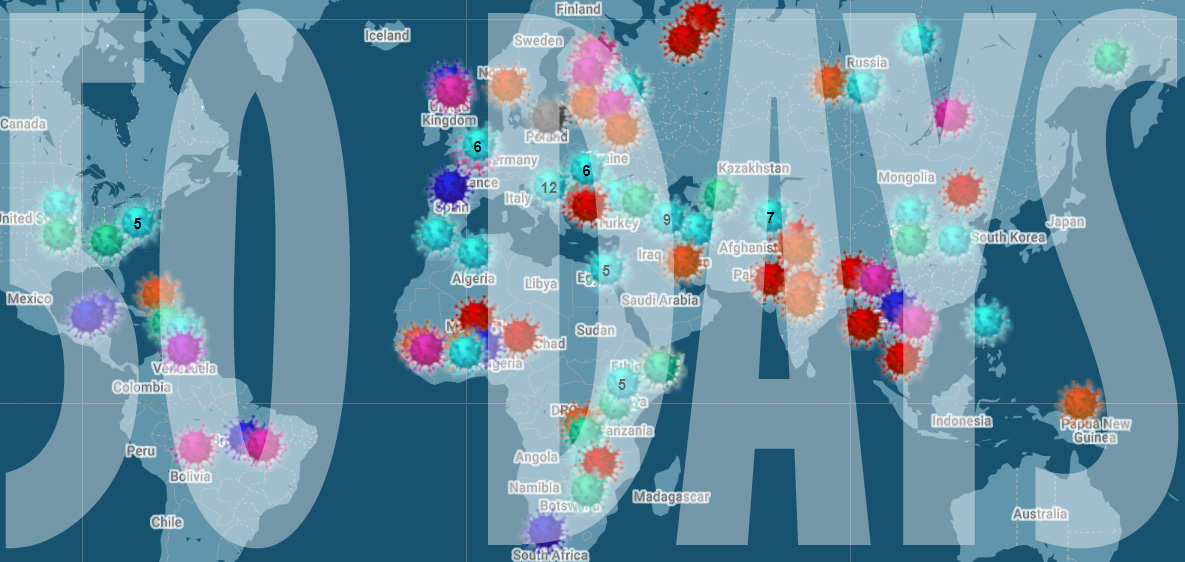
As we mark 50 days since we first started collating attacks on media freedom related to the coronavirus crisis, we’re horrified by the number of attacks we have mapped – over 150 in what is ultimately a short period of time.
We know that in times of crisis media attacks often increase – just look at what happened to journalists after the military coup in Egypt in 2013 and the failed coup against Recep Tayyip Erdogan in Turkey in 2016. The extent of the current attacks, in democratic as well as authoritarian countries, has been a shock.
Our network of readers, correspondents, Index staff and our partners at the Justice for Journalists Foundation have helped collect the more than 150 reports media attacks.
But these incidents are likely to be the very tip of the iceberg. When the world is in lockdown, finding out about abuses of power is harder than ever. Journalists are struggling to do their job even before harassment. How many more attacks are happening that we don’t yet know about? It’s a scary thought.
Rachael Jolley, editor-in-chief of Index on Censorship, said: “We are alarmed at the ferocity of some of the attacks on media freedom we are seeing being unveiled. In some states journalists are threatened with prison sentences for reporting on shortages of vital hospital equipment. The public need to know this kind of life-saving information, not have it kept from them. Our reporting is highlighting that governments around the world are tempted to use different tactics to stop the public knowing what they need to know.”
Index is alarmed that the attacks are not coming from the usual suspects. Yes, there have been plenty of incidents reported in Russia and the former Soviet Union, Turkey, Hungary and Brazil. At the same time there have been many incidents in countries you would not expect to see – Spain, New Zealand, Germany and the UK.
The most common incident we have recorded on the map are attacks on journalists – whether physical or verbal – and cases where reporters have been detained or arrested. There have been more than 30 attacks on journalists, with the source of many of these being the US President Donald Trump. He has a history of being combative with the press and decrying fake news even where the opposite is the case and the crisis has seen a ramped up attempt at excluding the media. During the crisis, he has refused to answer journalists’ questions, attacked the credentials of reporters and walked out from press conferences when he doesn’t like the direction they are taking.
We have also seen reporters and broadcasters detained and charged just for trying to tell the story of the crisis, including Dhaval Patel, editor of the online news portal Face of Nation in Gujarat, Mushtaq Ahmed in Bangladesh and award-winning investigative journalist Wan Noor Hayati Wan Alias in Malaysia.
Since we started the mapping project, we have highlighted other specific trends. Orna Herr has written about how coronavirus is providing pretext for Indian prime minister Narendra Modi to increase attacks on the press and Muslims. Jemimah Steinfeld wrote about how certain leaders are dodging questions while we have also looked at how freedom of information laws are being suspended or deadlines for information extended.
Although the map does not tell the whole story it does act as a record of these attacks. When this crisis is finally all over, it will allow us to ask questions about why these attacks happened and to make sure that any restrictions that have been introduced are reversed, giving us back our freedom.[/vc_column_text][/vc_column][/vc_row][vc_row][vc_column][vc_btn title=”Report an incident” shape=”round” color=”danger” link=”url:https%3A%2F%2Fforms.gle%2Fhptj5F6ZvxjcaGLa7|||” css=”.vc_custom_1589455005016{border-radius: 5px !important;}”][/vc_column][/vc_row]
12 May 20 | News and features, Volume 49.01 Spring 2020
[vc_row][vc_column][vc_column_text] [/vc_column_text][vc_column_text]
[/vc_column_text][vc_column_text]
The special report in the spring 2020 edition of Index on Censorship magazine, Complicity, focuses on the ways we give away our information and privacy and why. Take our new quiz to see if you know your facts about surveillance, app data and China’s global reach.
[streamquiz id=”5″][/vc_column_text][/vc_column][/vc_row]
07 May 20 | Awards, Fellowship, Fellowship 2020, News and features
As part of the Freedom of Expression fellowship week, we’ve become used to working with individuals or organisations who cannot get to London. Individuals who are imprisoned, for example, or those who have had their travel restricted. But this year’s global lockdown presented challenges on a different scale. As a result we did our first ever digital fellowship week.
“Because the fellows were not physically together, it has been harder to find times to work for everyone. Most fellows have internet access so we can keep in contact but communication can be difficult,” said Leah Cross, Index’s senior events and partnership manager, speaking about the challenges of creating the first online fellowship week for the winners of the Index 20th Freedom of Expression awards.
“It was a shame not to meet them in person but everyone has been quite flexible,“ she added.
This year more than ever, we have recognised that our Freedom of Expression Awards are not just about a single night in a London hotel. The coronavirus crisis meant we had to hold the awards ceremony online in mid-April rather than at The May Fair hotel but, in fact, even in other years when a physical awards ceremony was possible, the awards are more than just the symbolic handing over of a prize.
“We usually plan a week of activity including workshops, meetings with partners and other fellows and radio interviews. This year, the awards ceremony itself was held online and we have done the same with the fellows week,” said Cross.
In any normal year, the ceremony is just the central focus of a wider range of activities of awards week. All of the award winners become part of the Index Freedom of Expression Awards fellowship which celebrates individuals or groups who have had a significant impact fighting censorship anywhere in the world. Index works with the winners to provide longer-term assistance to help fellows maximise their impact and broaden their networks.
Cross said: “Despite the challenges, we are committed to working with the fellows throughout the year.”
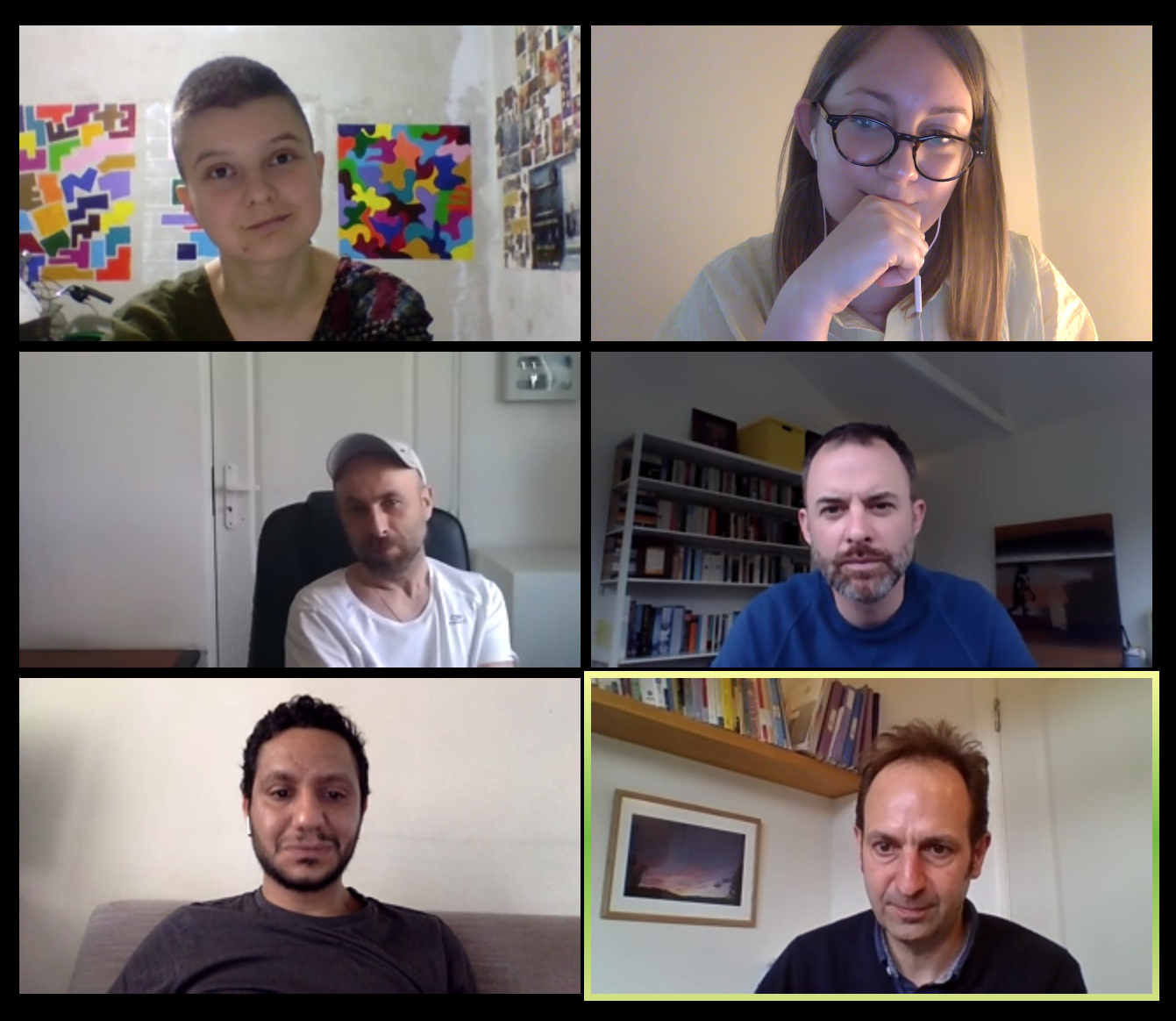
This has meant using video-conferencing technology such as Zoom and Google Hangouts, as shown above.
The workshops last two to three hours and cover a range of practical skills that fellows can use as they widen their reach and continue their important work.
“The workshop topics are intentionally quite broad,” says Cross. “A few years ago, Index settled on digital security, business development and communications and branding as they are quite versatile and can be relevant to all the different fellows.”
This year things have been a little different, said Cross, “Because the fellows were not physically together, it has been harder to find times to work for everyone. Most fellows have internet access so we can keep in contact but communication can be difficult.”
She added, “Some of our fellows have been called away for professional commitments and, in some cases, to take part in ongoing legal battles. They are obviously doing incredibly important work.”
This week the fellows have participated in two workshops online: one on communications and branding led by freelance workshop leader Helen Walton and the other on business development led by Charlie Dawson at management consultancy The Foundation.
In the first, fellows chose between two exercises: a brand key exercise for establishing fellows’ product and brand, customer/audience and key things to communicate; or a strategic exercise to think holistically about individual strengths and weaknesses and how they match to what is happening in the environment in which the fellow operates. They then work through individual goals in a one-to-one session with the instructor.
Cross said: “The brand and communications workshop helps fellows crystalise their brand as much possible and let them identify what audiences they want to reach. Many fellows are known only in their own countries and need to gain interest from other parts of the world. Sayed Ahmed Alwadaei, one of the two campaigning fellows this year, works exclusively with Bahrain, for example. It is important for him to know there is an awareness around what he is doing. This workshop also gives fellows an opportunity to tell their personal stories. Yulia Tsvetkova, our arts fellow, found that incredibly helpful.”
In the second workshop, the aim is to look at how to raise funding and awareness; develop business sustainability, growing and networking; and improve international networks. It helps them establish what they need from external audiences – what they value and what matters to them, the problems they need to solve or the outcomes they want
The fellows will also take part in a digital security workshop led by open source personal virtual private network service Private Internet Access.
The value of the extended support fellow receive is clear from the feedback Index has received in previous years. Mimi Mefo, the 2019 journalism fellow, says, “It was an amazing and inspiring week. It was not just about the award, it was about building this strong bond we have today and sharing our experiences.”
Terry Anderson of Cartoonists Rights Network International, the 2019 campaigning fellow, said taking part in the week last year was “humbling, enlightening and energising in equal measure”.
Cross said, “The fellowship is hugely valuable and it is a real privilege to work with people who are doing such incredible work while facing threats such as imprisonment and torture. They show incredible courage in what they are doing and we are looking forward to seeing what support they need through the year and using Index’s network to help them in any way we can.”
Find out about all the 2020 fellows here.
04 May 20 | India, News and features
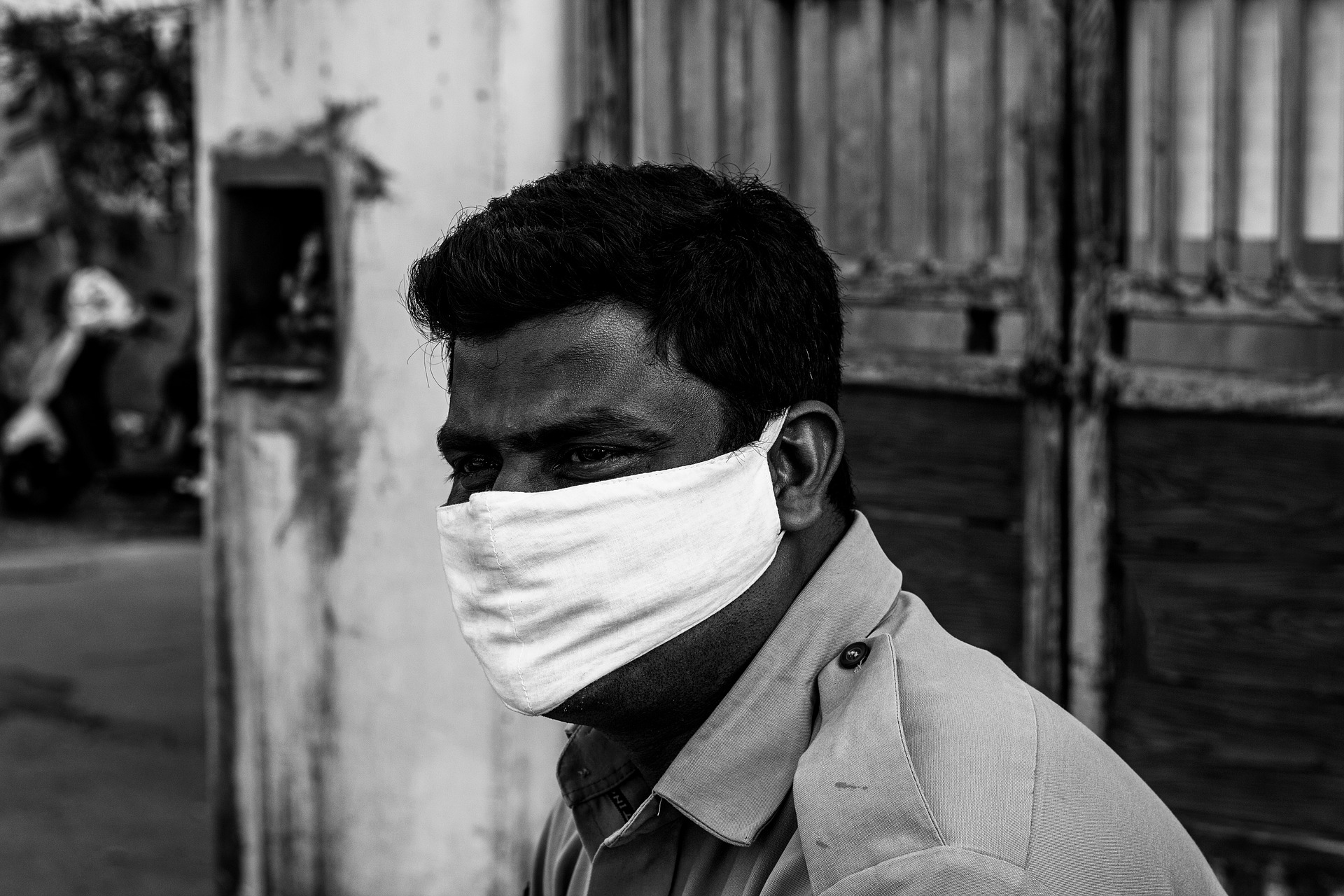
Image by Raam Gottimukkala from Pixabay
A friend in the police department apologetically texted me with some “friendly” advice. “Don’t be extra active on social media over corona issues which may lead to panic and rumours. There may be legal issues over it,” he said.
He wouldn’t elaborate further, but it didn’t take much to understand. A freelance journalist was arrested in Andaman and Nicobar Islands for a tweet on a bizarre quarantine rule. At least 13 people from various walks of life have been arrested since 1 April in Manipur for Facebook posts. A doctor at a government hospital had been harassed by the police and questioned for 16 hours at a police station after he put up a Facebook post complaining about the lack of protection gear for doctors. A founder of an online publication was arrested in Tamil Nadu for reports on problems faced by government healthcare workers. In Chhattisgarh, a journalist was slapped with a notice threatening arrest for his report on the plight of women in lockdown.
The pandemic has given the government free rein. India is witnessing very high levels of suppression of free speech and media censorship across the country.
“Everything is censored,” said a Kolkata-based journalist, declining to be identified. “You cannot report on anything that is not confirmed by the government. Getting data on anything is an ordeal.”
In the name of curtailing rumours and fake news, there have been curbs on free speech and freedom of journalists to cover the pandemic, especially those with questions that make the government uncomfortable. “It’s as if the media is an opponent. It is as if asking questions of the government is a crime, or a politically motivated exercise,” said the journalist.
On 30 March, Scroll.in published a list of ten questions that health beat reporters in Delhi had for the central government but did not get any answers. These included: How did the Indian government arrive at the pricing of the Covid test in private labs, which is Rs 4,500 ($60), and among the highest in the world? Why has the drug controller not released the list of Covid-19 testing kits that have been granted import and manufacturing licences? What are the steps the government is taking to map the scale of Covid-19 outbreak in the community? What arrangements have been made to ensure patients living with life-threatening conditions like cancer, tuberculosis and HIV that require continuous support are not deprived of critical care?
While questions such as these remain unanswered, journalists covering the Covid crisis say they are witnessing unprecedented levels of censorship. Government interaction with the press is stressed. Prime Minister Modi, in keeping with his record, has not organised a single press conference on the issue. Harsha Vardhan, a health minister, has interacted infrequently with the press, while the daily press briefings are conducted by a senior bureaucrat in the health department, Lav Agarwal.
“In the ministry’s organisation structure,” writes Vidya Krishnan in Caravan magazine, “Agarwal comes after two secretaries, four special secretaries and four additional secretaries, and is one of the thirteen joint secretaries in the ministry of health.”
Even the press briefings are not for all journalists. Barring Doordarshan (DD), India’s public broadcaster, and news agency Asian News International and a few accredited journalists, others have been barred from attending the press briefings in the name of social distancing. “The directive on social distancing became an excuse to not have journalists in the room,” said Anoo Bhuyan, Delhi-based health reporter with Indiaspend, a data journalism-based news portal.
“Then we got a message one day saying other than ANI and DD no one needs to attend the press conference. They said we could send our questions through WhatsApp. However, there is no guarantee that your question will be picked to be answered by Mr Agarwal. It is like a lucky draw without any rationale and definitely does not give equal chances to all journalists. In the very short time allotted for questions, only two to four questions are picked up, some of which are repetitions.”
The Modi-led government even approached India’s Supreme Court to legalise censorship by seeking an order that would prevent the media to publish anything “without ascertaining the true factual position” from the government. The court did not go that far, only directing the media to “refer to and publish the official version about developments”.
“The order itself does not have teeth, but the fact that there is an order may freak out many,” said Bhuyan. “It gets diabolical in that Lav Agarwal makes it a point to sometimes refer to the order and ‘remind’ journalists to ‘exercise caution’ and ‘report responsibly’.”
“What’s happening in India is extremely disturbing,” Vidya Krishnan, a Goa-based health reporter with Caravan magazine, tweeted on April 1. There is a media gag in place, doctors have been threatened to not speak out against lack of PPE kits, and the health ministry says we have no local transmission (without scaling up testing). Genuinely struggling to understand how we can continue reporting in this Orwellian setting.”

Source: Ministry of Health and Family Welfare, data correct as at 30/4/2020
Meanwhile, Mamata Banerjee, chief minister of the Indian state of West Bengal, announced insurance cover for journalists covering Covid from the frontlines. It is a combination of medical and life cover worth 10 hundred thousand Indian rupees (£10,500). There’s one rider: journalists have to do “positive” stories. “People are depressed seeing negative news all the time,” she said. “Journalists should be involved with the government,” she added without leaving anything to doubt.
This came just two days after she threatened legal action against journalists if they report “unconfirmed” fatality figures. Banerjee, who has a record of booking journalists, academics and the general public for social media posts critical of her, faces allegations that she is supressing Covid-related data in the state. The state has a special committee to “audit” and “ascertain” Covid deaths.
Banerjee has asked journalists to “behave properly” or face legal action.
01 May 20 | Covid 19 and freedom of expression, News and features
[vc_row][vc_column][vc_column_text]Governments are using the Covid-19 crisis to change freedom of information laws and, unless we are very careful, important stories could get unreported. Since the beginning of the crisis, governments from Brazil to Scotland have made changes to their FOI laws; some of the changes are rooted in pragmatism at this unprecedented time; others may be inspired by more sinister motives.
FOI laws are a vital part of the toolkit of the free media and form a strong pillar that supports the functioning of open societies.
According to a 2019 report by Unesco – published some two and a half centuries after the first such law was introduced in Sweden – 126 countries around the world now have freedom of information laws. These typically allow journalists and the general public the right to request information relating to decisions made by public bodies and insight into administration of those public bodies.
US president Thomas Jefferson once wrote: “Whenever the people are well informed, they can be trusted with their own government; that whenever things get so far wrong as to attract their notice, they may be relied on to set them to rights.”
Now in this time of crisis, freedom of information processes are being shut down, denied unless they relate specifically to the crisis or the deadlines for responses are being extended.
When the Covid-19 crisis first erupted, we made a decision to monitor attacks on media freedom. It wasn’t just a random idea; we know that in similar times of crisis, repressive governments often attack the work that journalists do – sometimes the journalists themselves – or introduce new legislation they have wanted to do for some time and now see a time of crisis as an opportunity to do so without proper scrutiny.
Since the start of the crisis, we have been collecting reports on attacks on media freedom through an innovative, interactive map. More than 125 incidents have been reported by our readers, our network of international correspondents, our staff in the UK and our partners at the Justice for Journalists Foundation. Many relate to changes to FOI legislation.
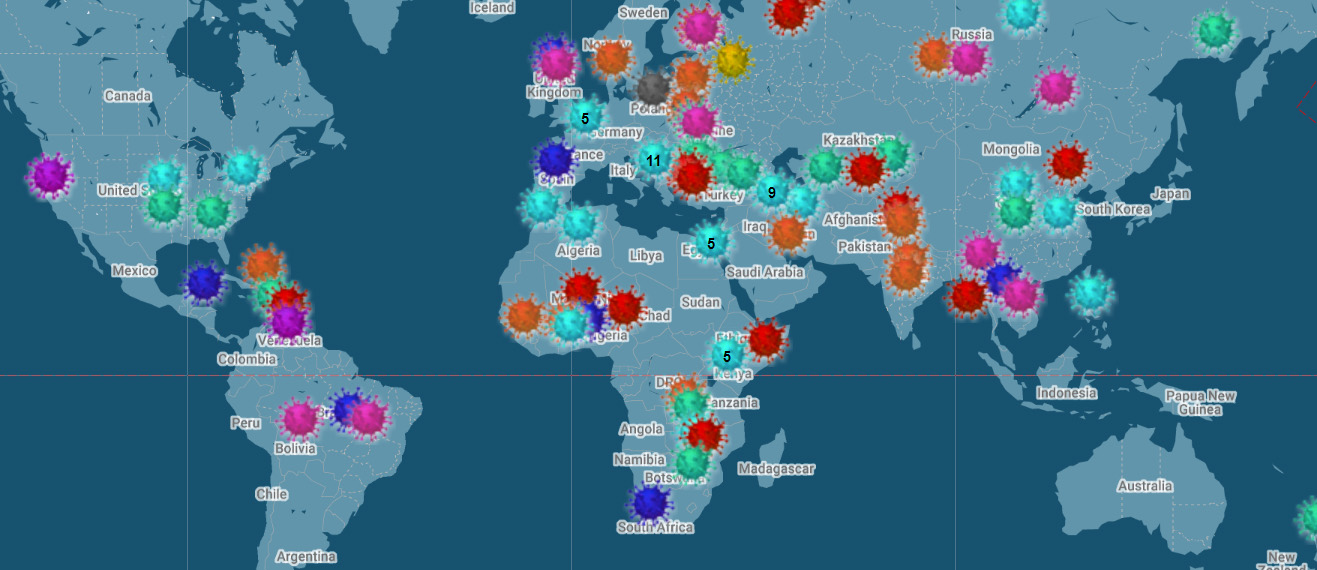
Let us be clear there can be legitimate reasons for amending legislation in times of international crisis. With many public officials forced to work from home, many do not have access to the information they need or the colleagues they need to consult to be able to answer journalists’ requests. Others need more time to be able to put together an informed response.
Yet both restrictions and delays are worrying. They allow politicians and public bodies to sweep information that should be freely available and subject to wider scrutiny under the carpet of coronavirus. News that is three months old is, very often, no longer news.
In its Coronavirus (Scotland) Bill, the Scottish government has agreed temporary changes to the Freedom of Information (Scotland) Act 2002 that extend the deadlines for getting response to information requests from 20 to 60 working days. The initial draft wording sought to allow some agencies to extend this deadline by a further 40 days “where an authority was not able to respond to a request due to the volume and complexity of the information request or the overall number of requests being dealt with by the authority”. However, this was removed during the reading of the bill following concerns raised by the Scottish information commissioner.
The bill was passed unanimously on 1 April and became law on 6 April. As it stands the new regulations remain in force until 30 September 2020 but can be extended twice by a further six months.
In Brazil, President Jair Bolsonaro has issued a provisional measure which means that the government no longer has to answer freedom of information requests within the usual deadline. Marcelo Träsel of the Brazilian Association of Investigative Journalism says the measure is “dangerous” as it gives scope for discretion in responding to requests.
The decree compelled 70 organisations to sign a statement requesting the government not to make the requested changes, saying “we will only win the pandemic with transparency”.
Romania and El Salvador are among the other countries which have stopped FOI requests or extended deadlines. By contrast, countries such as New Zealand have reocgnised the importance of FOI even in a crisis. The NZ minister of justice Andrew Little tweeted: “The Official Information Act remains important for holding power to account during this extraordinary time.”
FOI law changes are not the only trends we have noticed.
Index’s deputy editor Jemimah Steinfeld has noted how world leaders are ducking questions on coronavirus while editorial assistant Orna Herr has written about how the crisis is providing pretext for Indian prime minister Narendra Modi to increase attacks on the press and Muslims.
If you are a journalist facing unreasonable delays in receiving information from public bodies at this time, do report it to us at bit.ly/reportcorona.[/vc_column_text][/vc_column][/vc_row]
29 Apr 20 | News and features
[vc_row][vc_column][vc_column_text]Attacks on press freedom in Europe are at serious risk of becoming a new normal, 14 international press freedom groups and journalists’ organisations including Index on Censorship warn today as they launch the 2020 annual report of the Council of Europe Platform to Promote the Protection of Journalism and the Safety of Journalists. The fresh assault on media freedom amid the Covid-19 pandemic has worsened an already gloomy outlook.
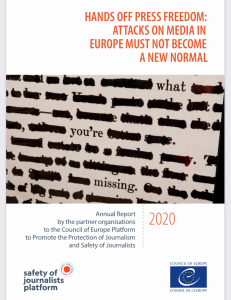 The report analyses alerts submitted to the platform in 2019 and shows a growing pattern of intimidation to silence journalists in Europe. The past weeks have accelerated this trend, with the pandemic producing a new wave of serious threats and attacks on press freedom in several Council of Europe member states. In response to the health crisis, governments have detained journalists for critical reporting, vastly expanded surveillance and passed new laws to punish “fake news” even as they decide themselves what is allowable and what is false without the oversight of appropriate independent bodies.
The report analyses alerts submitted to the platform in 2019 and shows a growing pattern of intimidation to silence journalists in Europe. The past weeks have accelerated this trend, with the pandemic producing a new wave of serious threats and attacks on press freedom in several Council of Europe member states. In response to the health crisis, governments have detained journalists for critical reporting, vastly expanded surveillance and passed new laws to punish “fake news” even as they decide themselves what is allowable and what is false without the oversight of appropriate independent bodies.
These threats risk a tipping point in the fight to preserve a free media in Europe. They underscore the report’s urgent wake-up call on Council of Europe member states to act quickly and resolutely to end the assault against press freedom, so that journalists and other media actors can report without fear.
Although the overall response rate by member states to the platform rose slightly to 60 % in 2019, Russia, Turkey, and Azerbaijan – three of the biggest media freedom violators – continue to ignore alerts, together with Bosnia and Herzegovina.
2019 was already an intense and often dangerous battleground for press freedom and freedom of expression in Europe. The platform recorded 142 serious threats to media freedom, including 33 physical attacks against journalists, 17 new cases of detention and imprisonment and 43 cases of harassment and intimidation.
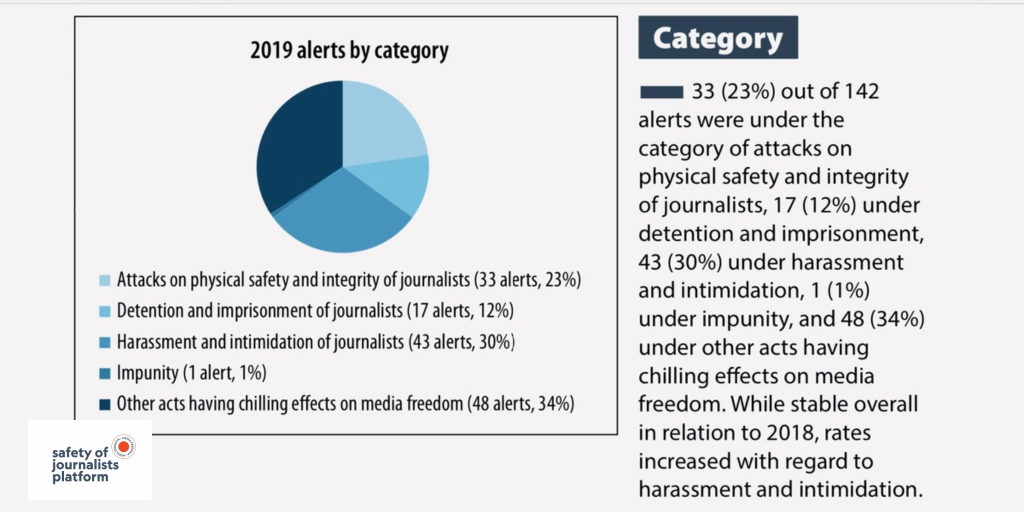
The physical attacks tragically included two killings of journalists: Lyra McKee in Northern Ireland and Vadym Komarov in Ukraine. Meanwhile, the platform officially declared the murders of Daphne Caruana Galizia (2017) in Malta and Martin O’Hagan (2001) in Northern Ireland as impunity cases, highlighting authorities’ failure to bring those responsible to justice. Only Slovakia showed concrete progress in the fight against impunity, indicting the alleged mastermind and four others accused of murdering journalist Ján Kuciak and his fiancée, Martina Kušnírová.
At the end of 2019, the platform recorded 105 cases of journalists behind bars in the Council of Europe region, including 91 in Turkey alone. The situation has not improved in 2020. Despite the acute health threat, Turkey excluded journalists from a mass release of inmates in April 2020, and second-biggest jailer Azerbaijan has made new arrests over critical coverage of the country’s coronavirus response.
2019 saw a clear increase in judicial or administrative harassment against journalists, including meritless SLAPP cases, and spurious and politically motivated legal threats. Prominent examples were the false drug charges filed against Russian investigative journalist Ivan Golunov and the continued imprisonment of journalists in Ukraine’s Russia-controlled Crimea. The Covid-19 crisis has strengthened officials’ tools to harass journalists, with dangerous new “fake news” laws in countries such as Hungary and Russia that threaten journalists with jail for contravening the official line.
Other serious issues identified by 2019 alerts included expanded surveillance measures threatening journalists’ ability to protect their sources, including in France, Poland and Switzerland, as well political attempts to “capture” media through ownership and market manipulation, most conspicuously of all in Hungary. These threats, too, are exacerbated by the actions taken by several governments under the health crisis, which further include arbitrary limitations on independent reporting and on journalists’ access to official information about the pandemic.
Jessica Ní Mhainín, Index’s policy research and advocacy officer, says, “There is a growing pattern of intimidation aimed at silencing journalists in Europe. The situation in Eastern Europe – especially in Hungary, Poland, and Bulgaria – is particularly concerning. But the killing of Lyra McKee shows that we cannot take the safety of journalists for granted anywhere – not even in countries that are seen to be safe for journalists. This report provides an opportunity for us all to come to grips with the serious situation that is facing European media and to remind ourselves of the vital role that the media play in holding power to account.”
Index and the other platform partners call for urgent scrutiny of action taken by governments to claim extraordinary powers related to freedom of expression and media freedom under emergency legislation that are not strictly necessary and proportionate in response to the pandemic. Uncontrolled and unlimited state of emergency laws are open to abuse and have already had a severe chilling effect on the ability of the media to report and scrutinise the actions of state authorities.
While the platform welcomes an increased focus on press freedom by European institutions, including both the Council of Europe and European Union institutions, the ongoing crisis demands more urgent and stringent responses to protect media freedom and freedom of expression and information, and to support the financial sustainability of independent professional journalism. In the age of emergency rule, protecting the press as the watchdog of democracy cannot wait.[/vc_column_text][/vc_column][/vc_row]
28 Apr 20 | Index in the Press
[vc_row][vc_column][vc_column_text]Editor-in-chief of Index on Censorship magazine Rachael Jolley writes in Eurozine about the trajectory of the BBC in recent months, from facing a barrage of criticism from the government to being lauded for keeping the public informed during the coronavirus pandemic.
“A BBC reporter, who described the months before as having felt like the BBC and everyone working there was constantly under fire, said only the BBC could have pulled off the massive change in programmes, fired up its news service and introduced the new education services in such a short time.”
Read the full article here. [/vc_column_text][/vc_column][/vc_row]
24 Apr 20 | Index in the Press
[vc_row][vc_column][vc_column_text]Index on Censorship’s editor-in-chief Rachael Jolley was on Digital News with the BBC News World Service on 7 April 2020 talking to hosts Gareth Mitchell and Ghislaine Boddington about Index’s project to map media freedom during the coronavirus crisis, and how important it is to report on and record attacks on our freedoms.
Jolley said: “when this crisis is over we want a format so we can gather the data together and hold governments to account so that people can get those freedoms back that they were willing to give up, perhaps for a short time because they felt that was vital, but not for the future”.
Listen to the full Digital Planet show.
[/vc_column_text][/vc_column][/vc_row]
24 Apr 20 | Index in the Press
[vc_row][vc_column][vc_column_text]Deputy editor of Index on Censorship magazine, Jemimah Steinfeld, writes in Eurozine about the violations the Index project to map media freedom during coronavirus is recording, and why this is so crucial.
“Mapping these abuses is of critical importance, not the least to let people and politicians know that we are watching and documenting. We need to increase awareness around the world about the challenges media professionals face during the coronavirus crisis, and to highlight the importance of media freedom.”
Read the full article here.
[/vc_column_text][/vc_column][/vc_row]




 [/vc_column_text][vc_column_text]
[/vc_column_text][vc_column_text]




